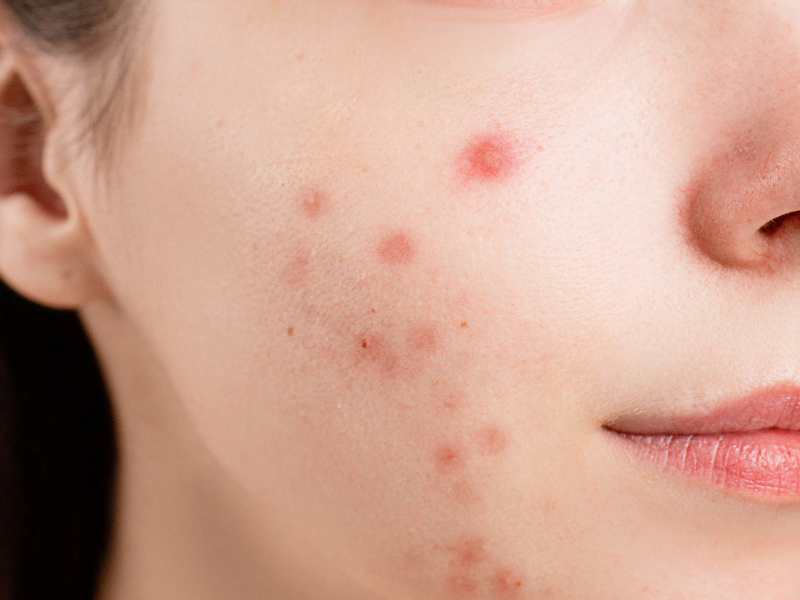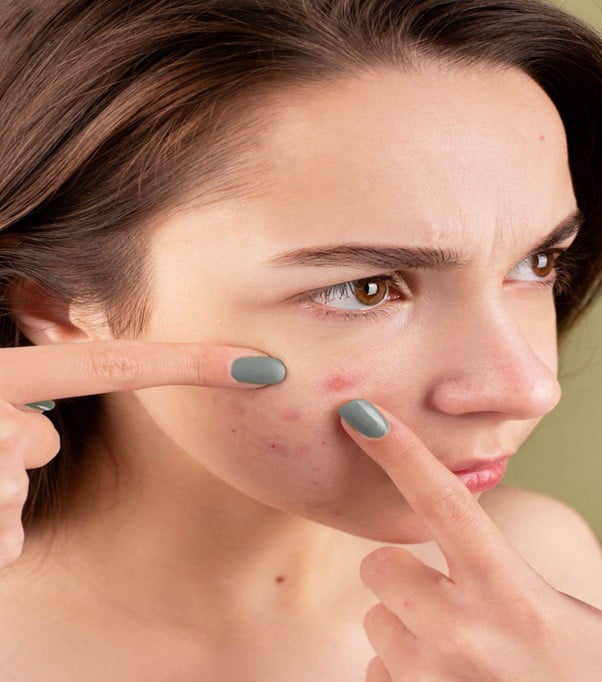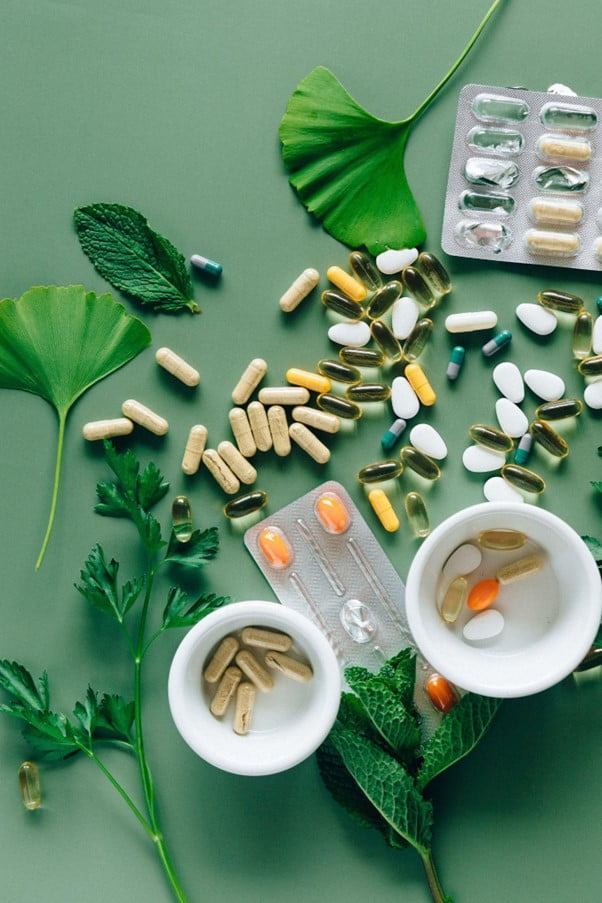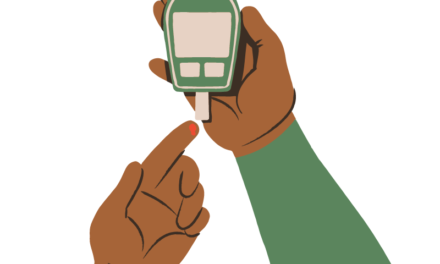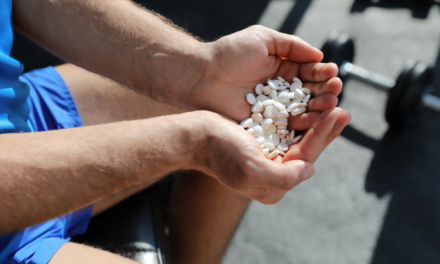Athletes and bodybuilders often use them to improve performance and build muscle mass. However, steroid use also carries significant risks, including a higher prevalence of acne. This article will explore the relationship between steroids and acne and strategies for preventing and managing acne among steroid users.
How common is acne in the UK?
Acne is a very common skin condition, and it is estimated that around 80% of people in the UK will experience acne at some point in their lives. Acne can affect people of all ages but is most commonly seen in teenagers and young adults. It is also slightly more common in males than in females. The severity of acne can vary greatly from person to person, ranging from mild, occasional breakouts to more severe, long-lasting cases that may require medical treatment. Overall, acne is a widespread skin condition in the UK, affecting millions of people each year.
Acne is a skin condition when hair follicles become clogged with oil and dead skin cells. It can manifest as pimples, blackheads, whiteheads, and cysts, ranging from mild to severe. Acne is caused by a combination of factors, including genetics, hormones, bacteria, and lifestyle factors, such as diet and stress. It can significantly impact physical and mental health, causing pain, scarring, and emotional distress.
The Relationship Between Steroids and Acne
Steroids work by increasing the production of testosterone in the body. This can lead to an increase in sebum production, which can clog pores and lead to acne. Additionally, steroids can cause the skin to become thicker, which can further exacerbate acne. The prevalence and severity of acne among steroid users vary depending on the type of steroid used and the dosage. Some steroids, such as testosterone and Dianabol, are more likely to cause acne than others.
Strategies for Preventing and Managing Acne Among Steroid Users
Proper hygiene and skin care are crucial for preventing and managing acne among steroid users. This includes washing the skin regularly with a gentle cleanser and avoiding harsh scrubbing or abrasive products. It is also essential to manage the side effects of steroids on the skin, such as dryness and irritation, by using a moisturizer and avoiding exposure to harsh chemicals or environmental irritants.
Medical interventions can also help prevent and treat steroid-induced acne. Topical treatments such as retinoids and benzoyl peroxide can help unclog pores and reduce inflammation, while oral antibiotics can help control bacterial infections. In severe cases, isotretinoin may be prescribed, although this medication carries significant risks and should only be used under the supervision of a medical professional.
Alternatives to Anabolic Steroids
Several natural supplements and strategies are available for those looking to build muscle and improve athletic performance without steroids. These include a healthy diet rich in protein and nutrients, regular exercise, and natural supplements such as creatine and beta-alanine. While these alternatives may not be as effective as steroids, they carry fewer risks and can provide significant benefits.
Special Considerations for Acne Management in Steroid Users
If you are considering using steroids, it is essential to consult with a medical professional to discuss the potential risks and benefits. They can also guide how to minimize the risk of acne and other side effects associated with steroid use. Careful monitoring and managing side effects are crucial for maintaining overall health and well-being.
Conclusion
In conclusion, acne is a common side effect of steroid use that can significantly impact physical and mental health. Proper hygiene, skincare, and medical interventions can help prevent and manage steroid-induced acne. Additionally, exploring alternatives to steroids can help individuals build muscle and improve athletic performance without risking their health. Education and harm reduction strategies are crucial for managing acne and other side effects associated with steroid use. Ongoing research is needed to understand the relationship between steroids and acne better.
FAQs
Q: What are anabolic steroids, and how do they work?
A: Anabolic steroids are synthetic substances that mimic the effects of testosterone in the body. They work by increasing the production of testosterone, which can lead to increased muscle mass and improved athletic performance.
Q: What are the potential side effects and risks of steroid use?
A: Steroid use carries significant risks, including liver damage, cardiovascular disease, and hormonal imbalances. It can also lead to the development of acne and other skin conditions.
Q: What is the prevalence of acne among steroid users?
A: The prevalence of acne among steroid users varies depending on the type of steroid used and the dosage. Some steroids, such as testosterone and Dianabol, are more likely to cause acne than others.
Q: What causes acne, and what are the different types of acne?
A: Acne is caused by genetics, hormones, bacteria, and lifestyle factors, such as diet and stress. There are several types of acne, including pimples, blackheads, whiteheads, and cysts.
Q: What is the impact of acne on physical and mental health?
A: Acne can have a significant impact on physical and mental health, causing pain, scarring, and emotional distress.
Q: How do steroids cause acne, and what is the prevalence and severity of acne among steroid users?
A: Steroids can cause an increase in sebum production, which can clog pores and lead to acne. The prevalence and severity of acne among steroid users vary depending on the type of steroid used and the dosage.
Q: What strategies can prevent and manage acne among steroid users?
A: Proper hygiene, skincare, and medical interventions such as topical treatments and oral antibiotics can help prevent and manage steroid-induced acne.
Q: What are some alternatives to anabolic steroids for building muscle and improving athletic performance?
A: Alternatives to steroids include a healthy diet rich in protein and nutrients, regular exercise, and natural supplements such as creatine and beta-alanine.
Q: What special considerations should be considered for acne management in steroid users?
A: It is essential to consult with a medical professional before using steroids to discuss the potential risks and benefits. Careful monitoring and managing side effects are crucial for maintaining overall health and well-being.
Author

Dr. Aditya K. Sharma
I am Dr. Aditya Sharma, a dedicated urologist specializing in kidney transplants and advanced urological surgeries. My career is driven by a passion for delivering exceptional care and pioneering surgical techniques. Outside the operating room, I have a keen interest in studying the effects of anabolic steroids on bodybuilding, seeking to understand the fine line between enhancing performance and maintaining health.

